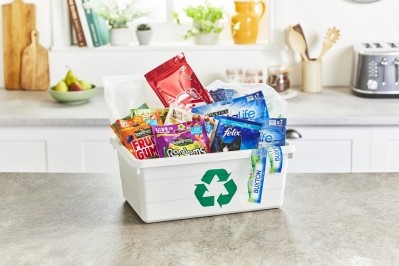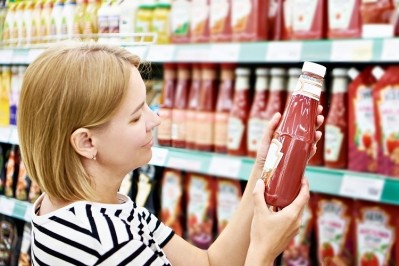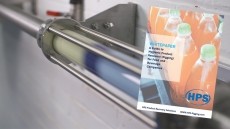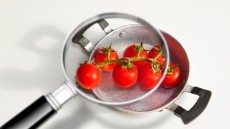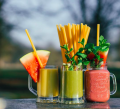Big Food likely to miss plastic targets, while ‘large part’ of industry yet to take action
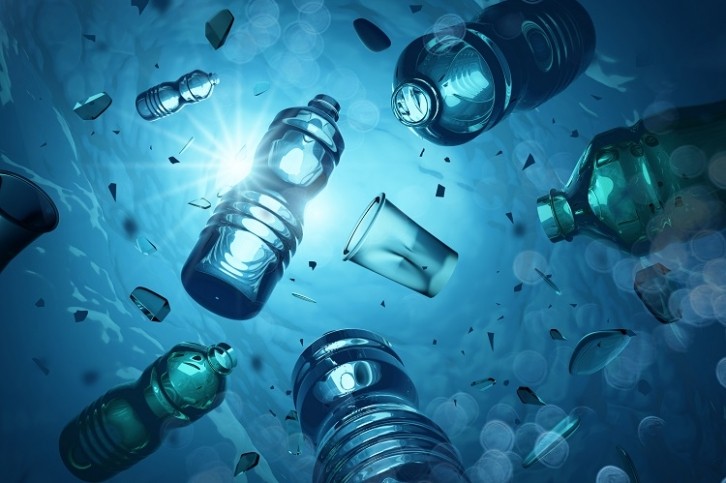
Five years on from the launch of the Global Commitment, developed by the Ellen MacArthur Foundation (EMF) and UN Environment, progress has been made. But not enough, according to the latest progress report.
Published today (31 October 2023), EMF’s Global Commitment 2023 Progress Report finds that signatories – made up of FMCGs including food and beverage majors such as Nestlé, Danone, PepsiCo and Unilever – have taken positive action to tackle plastic waste. As a collective group, they have stabilised their use of virgin plastics and more than doubled their share of recycled content.
But even so, that same group is likely to miss key plastic targets by the 2025 deadline. And with 1,000 organisations backing the Global Commitment, and only 160 of those food and beverage companies, a large part of industry has yet to take action. The world remains ‘far off track’ from fixing the plastic pollution crisis, warns EMF.
Virgin plastic: signatories remain stable, while market increases use
The Global Commitment includes key targets ranging from eliminating unnecessary plastic packaging to making all plastic packaging reusable, recyclable or compostable, and decreasing virgin plastic use in packaging.
Most brands and retailer signatories have reduced their virgin plastic packaging over the last five years. In F&B, the greatest percentage decreases have been achieved by FrieslandCampina, Unilever and Nestlé.
As a group, however, Global Commitment signatories’ have only reduced virgin plastic use by 0.1% since 2018. Findings reveal that overall progress has been held back due to an increase in virgin plastic packaging use by a few large organisations.
Amongst the top 10 FMCG players by revenue, food and beverage companies to have increased virgin plastic use since their stated baseline years include PepsiCo, The Cocoa-Cola Company, and Mars Inc.
Although on the whole virgin plastic use has remained flat, the market has increased virgin plastic use by 11% over the same period, suggesting a lack of action from non-signatory players.
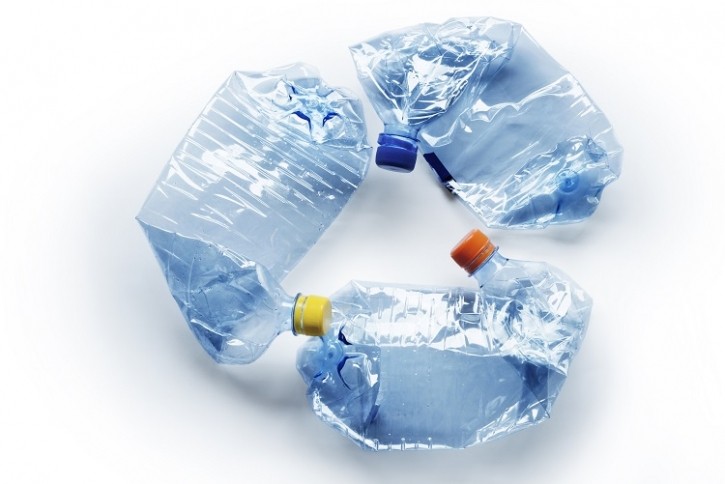
As to specific virgin plastic reduction targets set for 2025, the EMF report finds that less than a third (27%) of the 85% signatories to have set them are either on track or have already achieved them.
With just two years to go until the 2025 deadline, EMF predicts that a business-as-usual scenario would not see the group achieve their reduction targets.
Reusable, recyclable or compostable packaging
Another key target signatories committed to is ensuring that 100% of plastic packaging is reusable, recyclable, or compostable. Most (74%) brands and retailers increased or maintained their percentage of packaging that falls under these banners, but as a group, signatories are only 64.5% of the way there. Over the past year, their share of reusable, recyclable or compostable plastic packaging decreased by 0.9%.
Ways in which food and beverage companies have made progress towards this goal include Danone’s redesign of its Danacol bottle in partnership with Graham Packaging. The PET plastic label was replaced by embossing the bottle itself, which improves the recyclability of the bottle and creates an annual saving of 130,000 kg of plastic.
Danone and The Coca-Cola Company have also moved away from green bottles to clear plastic for their Badoit and Sprite offerings respectively. This will improve recycling of PET bottles and increase rPET supply.
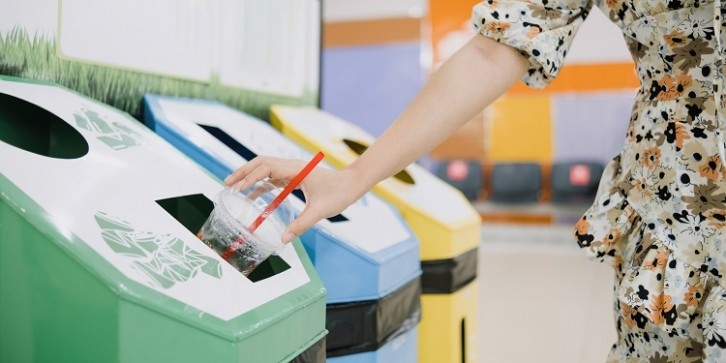
It is not expected the group of signatories will achieve this target by 2025. And for Nestlé, this is not a surprise. Achieving this target is not solely the responsibility of FMCGs, explained Jodie Roussell, global public affairs lead for Packaging & Sustainability at Nestlé S.A. Governments and consumers are also part of the picture.
“Governments need to commission collection, sorting, reuse and recycling facilities,” Roussell told press during a media briefing. “If there isn’t a mandate in the law for waste to be collected, generally it isn’t.”
And once governments have built collection systems, individuals need to decide to use those systems, she continued.
More directly within FMCG control is the redesigning of products for recycling. Close to 82% of Nestlé’s plastic packaging is designed for recycling as of the end of 2022. The Swiss food maker aspires to achieve more than 95% by 2025, and remains committed to achieving 100% recyclable or reusable packaging in the future, we were told.
A shift from voluntary to mandatory action
According to EMF, overall voluntary efforts to date suggest progress on plastic pollution is possible. But tougher measures are needed to truly turn the tide on the plastic problem.
With a large part of the industry yet to take action, and business signatories as a whole likely to miss the 2025 targets, the world is ‘not on course’ to eliminate plastic paste and pollution, suggests the report.
The answer? Binding policy and regulatory measures combined with greater business action, believes Sander Defruyt, Plastics Initiative Lead at EMF. “We now know that progress to tackling plastic waste at a global scale is possible, and where the key hurdles are that are preventing further change. But the world is far off track from fixing the plastic pollution crisis.
“The international legally binding instrument on plastic pollution currently being negotiated alongside accelerated business action are now needed. We can’t pick or choose from either of these measures – both are crucial to ensure progress is pushed further and faster.”
Nestlé’s Roussell agrees that more ‘enabling’ regulation will help industry move towards a reduced plastic packaging footprint. “There is still a lot of progress to be made, but I’m optimistic. I want to see…a shift from voluntary corporate commitment environment to one where all businesses are actually complying with new regulation.”
As does Unilever, which is calling on policymakers to 'level the playing field' for industry and help facilitate the implementation of solutions at scale. This is why the company 'strongly' supports the development of an ambitious, legally binding global treaty on plastic pollution, noted a Unilever spokesperson.

